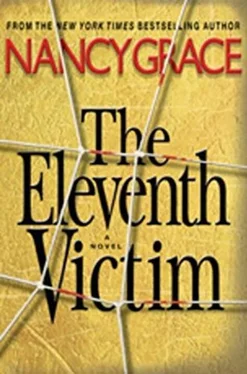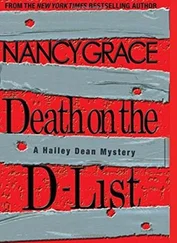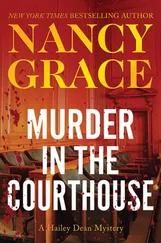“Last week, we talked about the day you and your sister went to the church carnival,” Hailey told Melissa gently. “Do you remember? You said that your sister made you go on the Ferris wheel because she was too young to ride alone, and you were afraid, but then when you were spinning around high in the sky, with all those lights dazzling below you, you felt strong. Remember?”
No smile, but Melissa nodded. “I remember.”
“And it felt good to come up with that memory. Remember how happy you were?”
Another nod, slower to come than the last. A key part of their recent sessions involved Melissa integrating happy childhood memories along with the disturbing ones.
“Did you share the Ferris wheel memory with Tammy when you saw her?”
“I did, but she doesn’t remember it. She doesn’t remember a lot of things.”
Her sister, Hailey knew, had once accused Melissa of making it all up-the beatings, the sex abuse.
It was Tammy’s way of protecting her father, or maybe protecting herself.
But she wasn’t Hailey’s patient. Melissa was. And for all the progress they’d made, Hailey knew they had a long way to go.
“Can you think of another happy memory?” Hailey asked. Melissa immediately shook her head, a curtain of hair covering her face.
“Maybe something else about the carnival,” Hailey suggested. “Did you eat anything there? Cotton candy, maybe? Snow cones? I love carnival food.”
So had Will.
“Snow cones.” Melissa nodded slowly, a hint of recognition in faraway eyes. “We ate snow cones. I had purple, Tammy had red.”
Instinctively leaning forward to help her patient once again delve into the past, Hailey had to acknowledge Melissa wasn’t the only one haunted by memories.
An hour later, Nathan Mazzelli replaced Melissa in the chair opposite Hailey. Mazzelli likely needed a defense lawyer more than a shrink. Hailey kept her expression carefully neutral as he described his latest intricate, sinister nightmare.
As always, it was about an IRS agent.
“So there I was”-Mazz twisted a sweat-sopped Hermès bandanna in his lap-“trying to fly away from him-”
“Fly?” Hailey interjected.
“Yeah, in the dream, I was a housefly.”
Interesting. A fly. She made a note on her pad as he went on. “But I saw him coming after me. Big guy, and he was wearing an incredibly plain navy suit. You know-not even pinstriped-and a white dress shirt, a white plastic ID card on his lapel.”
Typical. In Mazz’s dreams, IRS agents were always dressed in stark contrast to Mazz’s three-thousand-dollar Armani suits and Hermès ties. Sometimes the agents even sported plastic shirt-pocket protectors neatly stuffed with multiple black-ink plastic pens.
“Oh,” Mazz added, “and he had on a synthetic tie. Maybe polyrayon. I don’t know.”
Judging by his expression as he delivered this piece of information, a synthetic tie was a crime worse than…
Well, worse, as far as he was concerned, than anything Hailey suspected Nathan himself had done. He’d never actually confided anything illegal.
In Mazz’s dreams, the agents always chased him relentlessly through confusing mazes. On foot, he ran for his life through hairpin twists and turns, secret passages and trapdoors he never knew existed in the bowels of his own building, and resurfacing in buildings of clients.
“And did they find you behind the cabinets this time?” Hailey asked him as he wound down the narrative.
“Nope.”
Not yet.
The unspoken phrase hung in the air.
Hailey snuck a glance at the tiny clock surreptitiously placed on a shelf behind his head and realized they were out of time.
“Looks like we’ll have to pick it up next week, Nathan,” she said, as though it were just too bad the session was over.
“Okay, okay…by then, I’m sure I’ll have had a couple of new dreams.”
Maybe another couple of dreams…but Hailey was willing to bet they wouldn’t be new ones.
Hayden Krasinski was next.
For all the months the brilliantly talented, tousled blonde graphic artist had been seeing Hailey, sessions invariably went in fits and starts, depending on her mood. She was either way high or low.
Today, she was down. Way down.
They sat in silence for the first five minutes.
Then Hayden said bleakly, “I just don’t know.”
The statement, which hadn’t even been preceded by a question from Hailey, was punctuated by a heavy sigh.
“Hayden, why don’t you tell me about something positive that happened to you since we met last week.” Hailey tried a gentle, upbeat approach.
“I can’t think of anything” was the prompt reply. “Not a single thing.”
“Try.”
Hayden sighed again and fell silent, running her right forefinger up and down the scars on her left forearm.
Depressed, and not just over the accidental drowning deaths of her mother and kid brother two years ago, she repeatedly self-mutilated, methodically slicing horizontal grooves down her arms and along the insides of her thighs.
“Have you written anything this week?” Hailey wasn’t giving up.
“A poem.”
“Do you want to share it?”
Hayden shook her head. “No. You said to think of something positive. That wasn’t a positive poem.”
“It’s a positive thing that you wrote it. You told me your writing is cathartic.”
Hayden nodded, staring at her scars.
Hailey paused before deciding to plunge ahead with an idea that had struck her the other day in the elevator of her building, where she’d run into one of her neighbors, an editor at a small publishing house.
“You know, I’ve been thinking about your poetry, Hayden, and the pieces you’ve shown me are really good.”
Hayden looked up sharply.
“Really, really good. And you know I’m not just saying that,” she added, reading Hayden’s mind.
A hint of a smile lit Hayden’s pretty brown eyes, though she said nothing.
“Maybe you could publish them.”
“Who would want to publish them?”
“I have a friend-she’s an editor. She’s done quite a few poetry collections featuring poems from new talent, and I’m sure she’d be willing to take a look.”
“What if she hates them?”
“What if she doesn’t?”
Hayden considered that. “I don’t know,” she said heavily again, but at least this time it was relevant.
“Think about it. Okay?”
“Okay.”
Hailey smiled. “Okay.”
At least they were making progress.
She knew the dichotomy of Hayden would haunt her long after the workday ended. It always did.
She jogged nearly every evening after work, alone along the East River, just as the New York skyline began to twinkle with lights against the darkening sky. The river was deep and gray and beautiful. Tugs and speedboats and huge container ships passed by under bridges that were lit up against the skyline. On days Hayden had been in, Hailey would look out over the dark waters and dwell on the patient with sharp scars marking her arms and beautiful poetry and drawings tucked into her backpack.
Something Hayden had told her once, early in their work together, remained stubbornly stuck in Hailey’s brain.
“I’m going to die young, like my mother,” Hayden had said, with a cryptic shrug. “Only a lot younger than she was.”
Hailey first assumed she was suicidal, but over time, had ruled that possibility out…almost.
“It’s just a feeling I’ve always had,” Hayden told her recently. “You know-that I’m not going to be here for very long. I just don’t belong here, I don’t fit in.”
The feeling could very well be a symptom of her depression, but it waved a red flag. Hailey worried deeply about her between sessions and always met Hayden at her office door with relief that she had shown up again and all in one piece, dressed as always in T-shirts and worn, baggy jeans covered in ink and marker drawings, knees showing through.
Читать дальше











